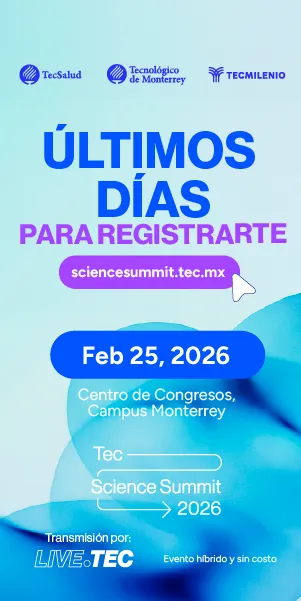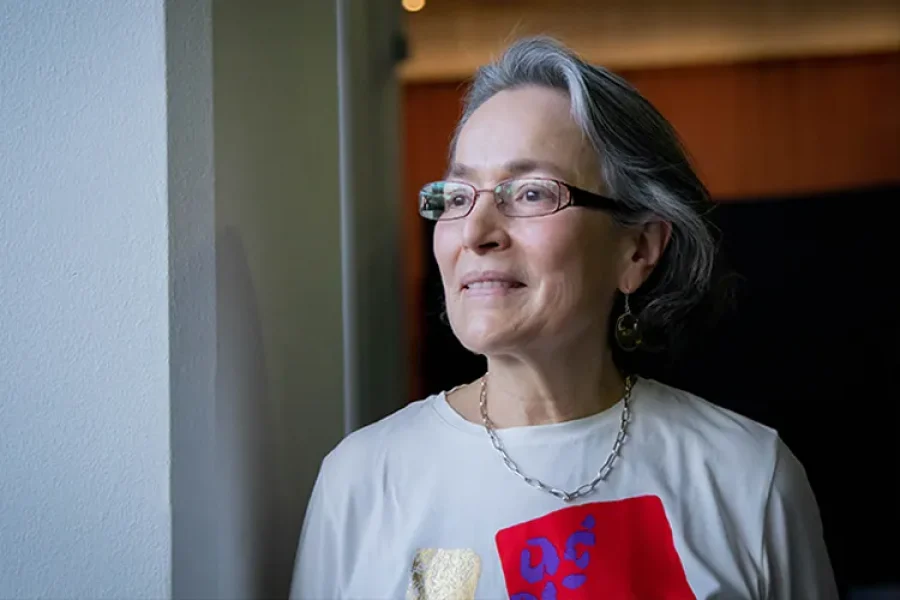Tecnológico de Monterrey unveiled “Ruta Azul,” in 2021, a strategy plan made up of programs, initiatives, and research aimed at building a sustainable future by fostering a proactive culture in response to climate change and promoting a culture of sustainability, however, to achieve cultural change, it was essential first to measure it, which led to the development of the concept of the Sustainable Culture Index.
The Index was developed by Florina Arredondo and Gabriel Cué Guerrero from the School of Humanities and Eva Guerra from EGADE Business School and it’s led by Luis Fernández Carril, academic coordinator of Ruta Azul.
Luis explains that the primary goal of the index is to identify four critical aspects: Tec de Monterrey members’ ideologies, attitudes, knowledge, and behaviors regarding climate change, the environment, and sustainable development.
Students in high school, college, and graduate school have to complete an annual survey that consists of 80 questions on a wide range of sustainability-related topics to evaluate sustainable culture, then the replies are quantified to create a rating from 0 to 100. A higher score reveals a stronger sustainability culture, while a lower score highlights areas that still need work.
Fernández emphasizes that while the index was established expressly for Tec de Monterrey, other communities, including governments, businesses, or organizations looking to measure their sustainability culture, may benefit from its methodology and the focus on the four key elements.
“There is a pressing need for individuals to take action in the face of the catastrophe. Understanding people’s viewpoints is essential for developing targeted activities that inspire action. People must stand up and take action, claims Fernández.
The Four Essential Pillars of the Sustainable Culture Index
The four key components of the index are knowledge, ideologies, attitudes, and behaviors.
The knowledge pillar, as the name implies, tries to measure people’s general knowledge of topics related to climate change, the environment, and sustainable development.
It evaluates, for instance, if people comprehend how humans and the environment interact or if they are aware of greenwashing, the practice of making businesses and organizations look more environmentally friendly than they are.
This pillar also looks to see if people are aware of the factors contributing to the ecological crisis, the implications of climate change, and some of the steps being taken to combat or mitigate its effects.
The Ideologies pillar has to do with the community’s beliefs and perspectives on sustainability.
According to Fernández, they want to determine things like if human-centered ideologies are dominant or whether more ecological views value other species and the environment.
It also looks at beliefs associated with scientism and technological optimism, such as a strong belief that science will manage the issue and find a technological remedy by using renewable energy and other developments in technology.
The Attitudes pillar assesses how individuals feel about the world and the severity of the climate crisis from their point of view.
For instance, it looks at how much of the population sees responsibility for mitigating climate change as residing with individuals, the government, the corporate sector, or technology, without taking into account the social and political general aspects of sustainability.
The final pillar, Behaviors, tries to evaluate people’s sustainable actions. It evaluates if the community has embraced sustainable behaviors like resource management and reuse.
It also looks at whether individuals utilize ecologically friendly or more responsible modes of transportation and if they consume sustainable goods and foods.
The section takes into account, among other things, how much individuals participate in civic activities and organizations that support the environment and sustainable education.
Luis Fernández is in charge of this index, while professors of Tec’s Humanities school like Florina Arredondo Trapero and Gabriel Cue Guerrero also contribute.
The Importance of Understanding Sustainability Culture
The index components, according to the researchers, are crucial for encouraging engagement and changes in behavior toward attitudes, actions, and attitudes that are beneficial to the environment. As part of the strategy plan “Ruta Azul,” Luis points out that the index serves as a benchmark to assess the effectiveness of Tec’s sustainability initiatives. He also adds that the index may be scaled and tailored to other organizations, enterprises, and even countries in addition to being applicable to Tec.
Apart from sustainability research conducted by researchers in exact sciences, Luis argues that projects like these highlight the importance of research in the humanities in fighting climate change.
“This is an outstanding demonstration of the practical, not just theoretical, contribution of the humanities to comprehending the climate catastrophe. In light of this global crisis, we need immediate, extensive, and unprecedented efforts, he says.
Fernández also contributed to the United Nations’ Intergovernmental Panel on Climate Change (IPCC) report for 2022, which has been emphasizing for more than five years the need to keep global warming to 1.5°C by 2030 in order to assure a sustainable future.
















